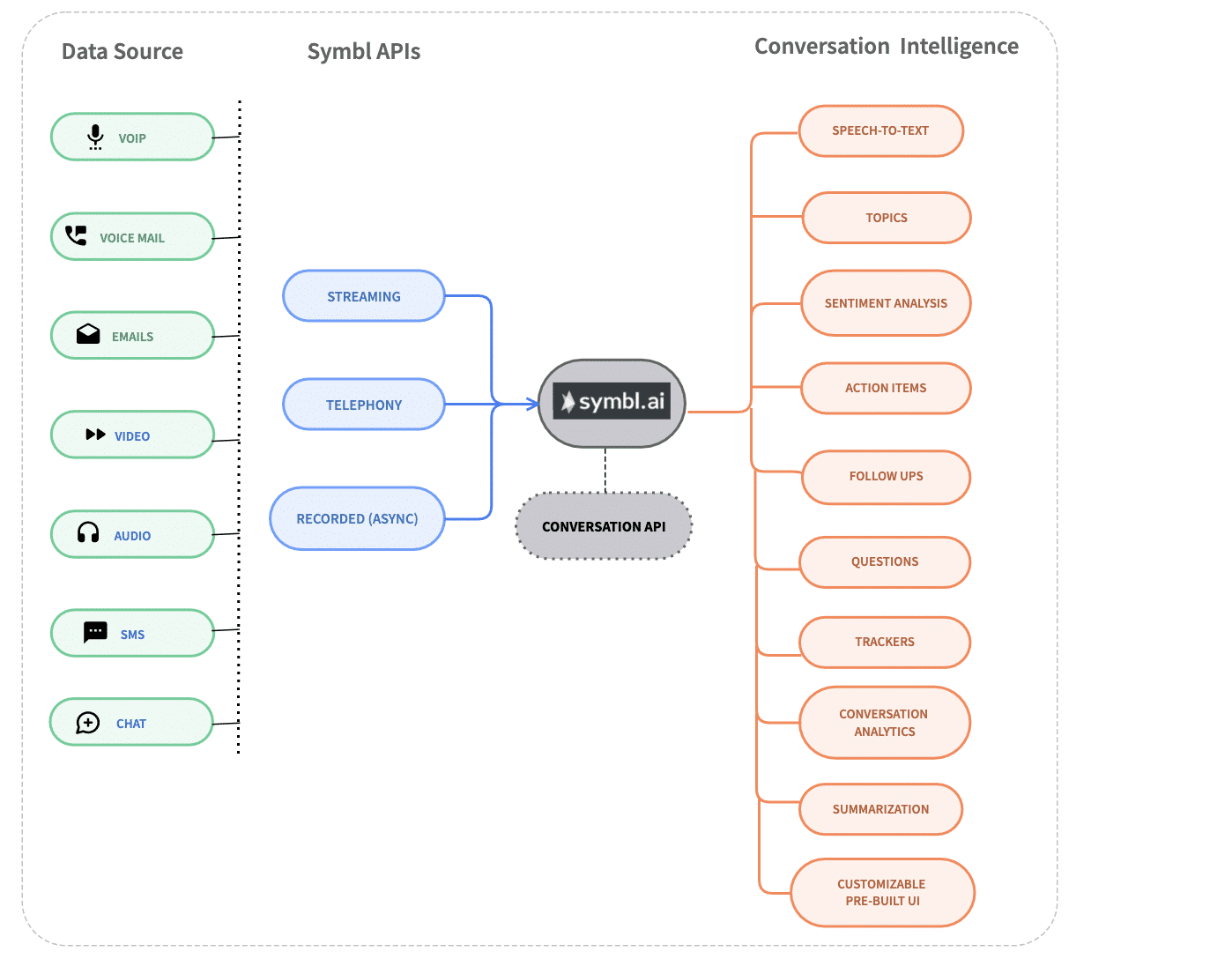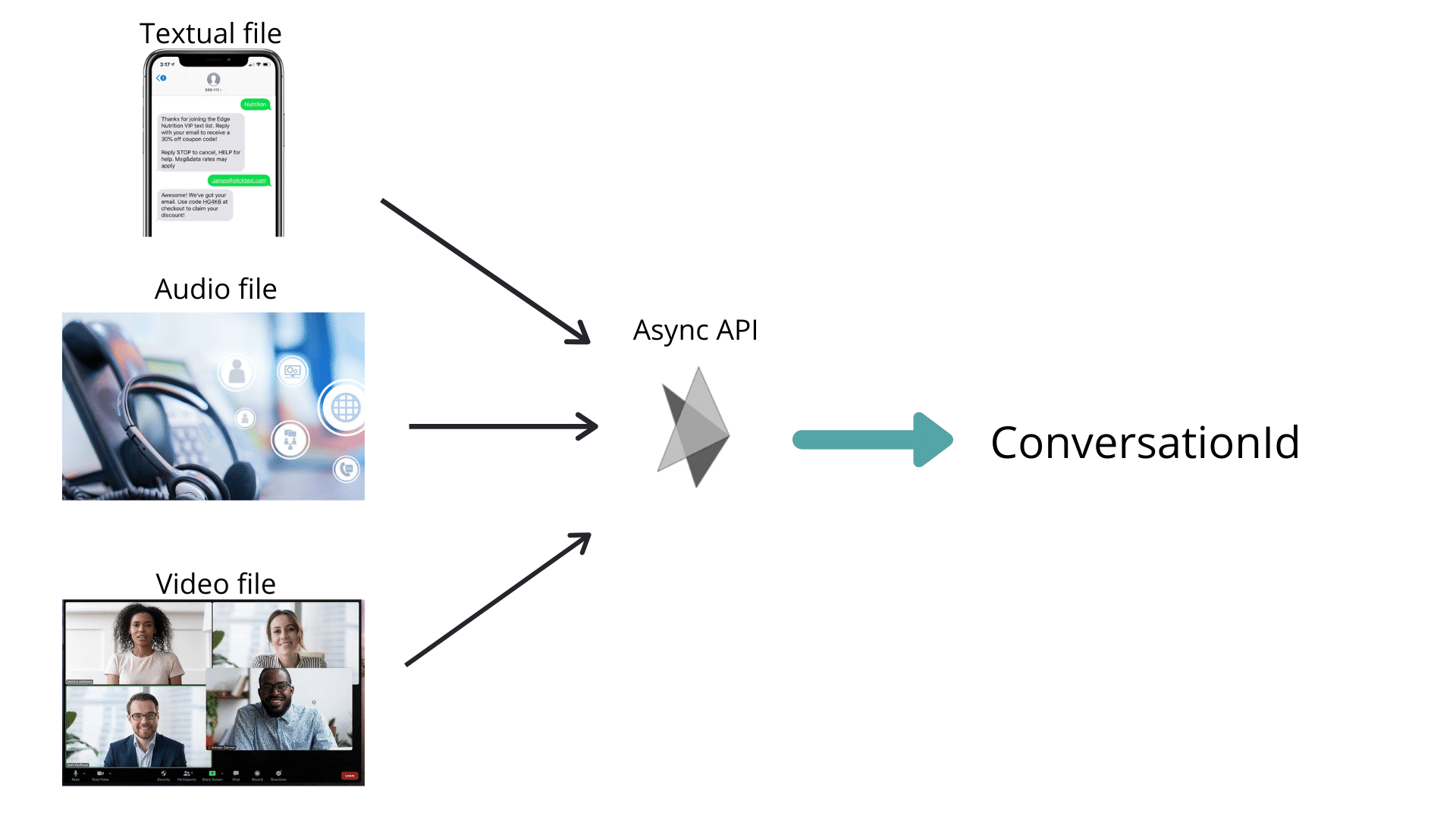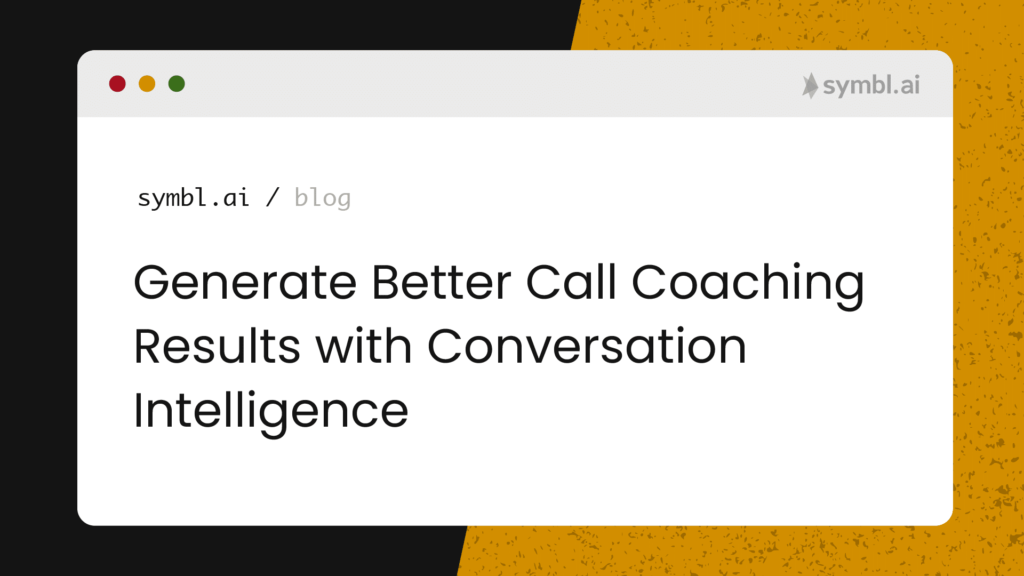TL;DR. Symbl.ai’s Conversation Intelligence with real time call tracking can help you collate questions, action items and identify trends from your agents’ calls to assist you with call coaching.
What is Agent Call Coaching?
Imagine a world where the only data available to a call center manager was the percentage of resolved customer calls. For example, let’s look at two agents. With this kind of data, you can easily see that Chloe can resolve 67% of her calls, but Natasha only 45%. However, you cannot determine the best way to resolve it without deeper insights to reveal why this is happening.
How do you know the best way to help Natasha succeed? What explains the difference between Chloe and Natasha’s results? Is Chloe more polite than Natasha or more empathetic? Maybe she’s better at handling specific objections, which helps her improve conversions or resolutions. Any of these reasons could explain Chloe’s success relative to Natasha’s. Understanding the specific reasons for these differences could help you provide Natasha with more personalized call coaching to improve her call handling. But, how do you figure out what they are?
Call coaching is often limited in its effectiveness because without deeper insight into your team’s performance, you have nothing to inform the kind of training you might use to improve it.
Firstly, not all calls are recorded. The industry standard is between 2% and 5%, which is a small sample size. You may be missing out on important call information, which could be vital in training or making improvements to certain aspects of calls.
These calls could be selected from a range of different call types, making it difficult to focus on one department or one type of call because of the small sample size.
With the small number of calls selected, the quality team will listen to them. Their job is to analyse the calls and identify improvements for the relevant departments. Depending on the size of your business, the quality team could be large, adding costs to your business.
Listening to several calls can be time-consuming as you have no idea what each call is about or how the call was handled. Therefore you would need to listen to all recorded calls.
You also can’t give feedback in real-time. This means it could be days or weeks before feedback is given on a certain call rather than going to an agent and telling them how they can improve the call they’ve just handled.
If you want to make things easy when call coaching, using artificial intelligence (AI)to monitor and extract insights from your calls is a game-changer. It allows you to be proactive in your coaching because the analysis can be done in real time, while the agent is on the phone with the customer and makes it easy to drill down into certain calls without listening to them all.
Symbl.ai’s Conversation Intelligence can help do this.
Symbl.ai’s conversation intelligence takes call coaching to the next level
Conversation intelligence uses AI to analyze text or speech to gain insights into calls. You can integrate Symbl.ai into your video or audio applications without having to build the complex machine learning models typically required for AI.
There are different types of data you can gather from analyzing calls but these are the most helpful to call coaching:
Business-Specific Insights
Custom Trackers help you track when certain words or phrases are said in a conversation. You’ll be able to spot trends or see how well a conversation went. This information will let you address if any agents aren’t using the right language with a customer.
For example, you can create a list of certain phrases or keywords around a context and Symbl.ai will be able to look for contextually similar phrases. When it comes to detecting phrases in a conversation, the offset value will show you if there’s a match.
Let’s look at an example of a tracker list. Tracy, the head of training for the sales team is looking to see how well her team does at the call to action at the end of a sales call. She uses the CTA Tracker to gain insights. The CTA Tracker uses contextually similar phrases to:
“Do you want to buy it?”
“Is this of any interest to you?”
“Do you want me to process this order”
“Who shall I make the invoice out to?”
“When would you like this delivered?”
“Let’s discuss pricing.”
Questions
Symbl.ai can automatically identify and generate questions or anything deemed as a request for information from any conversation. Monitoring what questions are asked over multiple calls can help identify those most commonly asked. This information can be used to train new agents or run workshops for existing agents so they know how to answer these questions correctly.
Action Items
In our conversations with people, there can be times when we have agreed to do something. This could be arranging a meeting for next week, calling a customer back within 48 hours, or checking the stock level for a certain item.
Armed with a list of action items from calls, you can identify common tasks and determine how to best provide support to ensure they are completed. You can also see how the team member did at actioning these tasks and give positive feedback for those completed promptly.
Use Cases
1. Refining customer service responses
By using Trackers, you can help your team members improve their responses to customers. This can help you improve customer satisfaction levels, increasing Customer Satisfaction(CSAT) and Net Promoter Score (NPS).
If you set up a tracker list of positive phrases that are common in successful conversation such as “Thank you,” “You’ve been helpful,” or “It’s been good to talk to you,” you can analyze the call to view how often contextually similar phrases are being used.
If you find a team member that has low scores, you can spend time improving the language that the agent uses to speak to customers. You could also let a low-scoring team member shadow or listen to calls from a high-scoring team member to learn from.
2. Address questions before they’re asked
If you find that someone on your team is constantly being asked the same question over multiple calls, then you can address this by adjusting the script to anticipate that question.
This will allow the team member to be more proactive and address the customer’s problems before they even occur in the customer’s head. This enables faster resolutions to customer issues to improve the overall customer experience, resulting in increased customer retention.
3. Monitor performance
You can use an Action List to track the performance of your customer support team, monitoring each conversation and comparing them with the number of support tickets. This will show you how well your team is able to resolve issues on the phone instead of having to raise a ticket or escalate to a higher level of support.
An Action List can also give you insight into whether there are tickets being raised as tickets that could be dealt with on the phone. This introduces the opportunity to know where additional training is needed to help your agents resolve more issues during their calls, improving customer service and reducing the number of tickets raised.
4. Increase conversions
Easy access to in-depth call data can help you increase your conversions. If you’re analyzing calls in real-time, you can also enable suggestive inputs for cross-sell/upsell opportunities, and other possible services or products that might interest the customer or solve their problems.
Reviewing action items can also identify customer pain points providing insights for innovation – ideas for new products or services that you can develop to help with cross-selling or upselling.
Conversation Intelligence in your apps for coaching purposes
With Symbl.ai you have multiple options for integration. You can either analyze calls in real-time via the Streaming or Telephony APIs, or you can take recorded phone calls and analyze them asynchronously.

Symbl.ai’s SDK makes it easy to integrate into web conferencing platforms like Zoom and is available in JavaScript or Python. Each of these approaches is described in Symbl.ai’s SDK documentation.
The Streaming API takes advantage of JavaScript’s Websockets. This is the best option when you want real-time results while processing live audio. The Streaming API can be integrated directly via the browser or server.
The Telephony API can help you get results from real-time calls based on PSTN and SIP protocols. You can make use of the Symbl.ai’s SDK to help with integration. You can find tutorials for this approach in Symbl.ai’s Telephony API documentation.
One of the easiest ways to analyze your calls is via the Async API. It can provide analysis of text, audio, or video files. When you upload the files to the Async API, you get a ConversationId which allows you to retrieve the insights you’re after in your calls, such as questions, action lists, and much more.

Take your call coaching to the next level with conversation intelligence. Symbl.ai can help you improve call coaching to empower your agents with better skills and improve customer service. Sign up for a free account today to explore all the possibilities!
Additional reading
- 9 Quick Tips to Improve Your Call Center Coaching
- Symbl.ai’s official documentation
- Get started with Symbl.ai in 15 mins
- Join Symbl.ai’s Slack community
- Symbl.ai blog
